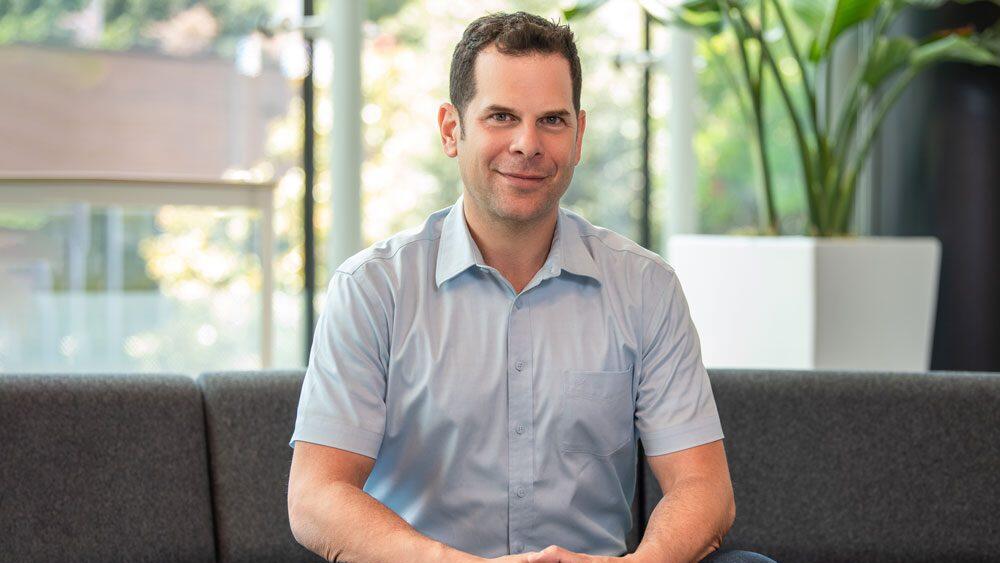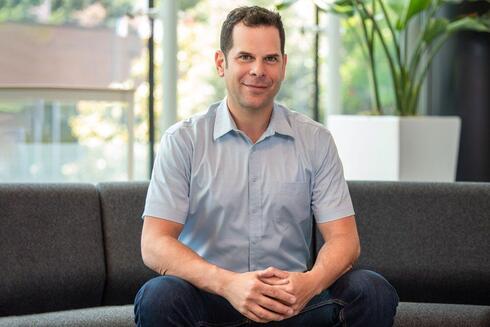
VC AI Survey
AI will make human-to-human work more valuable than ever, says Next47
In CTech’s VC AI Survey, General Partner Moshe Zilberstein shares how artificial intelligence will impact different sectors - notably the contrast between white and blue collar positions.
“AI will transform both the front and back office. In white-collar sectors, we’ll see a leap in productivity, as AI will be less about replacing jobs and more about augmenting them,” explained Moshe Zilberstein, General Partner at Next47. “But in blue-collar industries, it’s more existential.”
Zilberstein joined CTech for its VC AI Survey to share how artificial intelligence will impact different sectors. While it’s easy to sit at a desk and fantasize about what makes your data inputting easier, for others, the looming presence of AI poses a larger risk.
“AI-powered robotics will replace labor outright in logistics, agriculture, and manufacturing. What’s considered ‘too expensive to automate’ today will be viable within a few years,” he continued. “That said, human-to-human interactions will become premium experiences. Hospitality, education, healthcare: all will benefit, not by replacing people, but by elevating them.”
You can learn more in the interview below.
Fund ID
Name and Title: Moshe Zilberstein, General Partner at Next47
Fund Name: Next47
Founding Team: N/A
Founding Year: 2016
Investment Stage: Growth
Investment Sectors: AI, Fintech, Cyber, B2B
On a scale of 1 to 10, how has AI impacted your fund’s operations over the past year - specifically in terms of the day-to-day work of the fund's partners and team members?
10 - Beyond operations, AI has shifted our investment strategy. It's not just a tool we use; it's the primary lens through which we evaluate and deploy capital. The velocity and volume of innovation in AI is incredible, and we’re excited to back teams that are reimaging the future leveraging this amazing technology.
AI has also become deeply embedded in how we operate as a fund. From diligence to global market intelligence, we've integrated AI into almost every workflow. Our research processes are now faster as generative models quickly summarize technical documentation, evaluate market dynamics.
Have you already had any significant exits from AI companies? If so, what were the key characteristics of those companies?
We’ve been backing AI companies from the earliest days of its modern wave and have had multiple exits globally. One example is Deepscale, an AI perception company that was acquired by Tesla. Though the most transformative outcomes may still be ahead. The companies we've been backing and seen grow quickly share one key trait: they’re not just applying AI as a layer; they have AI DNA. These aren’t “AI-adjacent” startups, they’re platform businesses with deep domain expertise and a proprietary AI moat.
Is identifying promising AI startups different from evaluating companies in your more traditional investment domains? If so, how does that difference manifest?
Absolutely. The challenge in AI investing isn’t technical validation, it’s understanding where the moat actually lies. The models themselves are impressive, but increasingly commoditized. So we ask: what can this team do that others can’t, even with access to the same foundational models? We're looking for differentiated data sources, vertical integration, or proprietary workflows that compound over time. It’s less about who has the “best AI” and more about who’s solving a real problem in a way that’s genuine, defensible, scalable, and profitable.
What specific financial performance indicators (KPIs) do you examine when assessing a potential AI company? Are there any AI-specific metrics you consider particularly important?
We didn’t abandon the fundamentals. We still look for large addressable markets, healthy gross margins, and customer obsession. Yet, with AI companies, we also pay close attention to unit economics - what’s their inference cost per user or per transaction? How efficient is their model usage? Metrics like time tuning costs, accuracy, latency, and cost per transaction are critical.
How do you approach the valuation of early-stage AI startups, which often lack significant revenues but possess strong technological potential?
We benchmark globally and act accordingly. The best AI companies, regardless of geography, are commanding premiums, and rightly so. As a global fund, we’re exposed to valuation norms across the U.S., Europe and Israel. We don’t flinch at high entry prices if we believe the opportunity is asymmetric. What matters is conviction. If the founding team is exceptional and the tech edge is real, we’ll lean in…even at a premium.
What financial risks do you associate with investing in AI companies, beyond the usual technological risks?
Speed cuts both ways. Companies built on generalized models can see explosive growth, but that growth often plateaus just as quickly. If the core value proposition is simply access to the same model everyone else is using, then there’s little to defend. We’re wary of businesses that are built on shallow moats. Another concern is model dependency: if infrastructure or licensing costs surge, or access terms change, margins can evaporate. We look closely at concentration risk, whether in data, computing, or vendor relationships.
Do you focus on particular subdomains within AI?
Generative AI is where the disruption is most visible, and we’re leaning heavily into it. The second-order effects of GenAI, on productivity, creativity, and human-computer interaction, are only beginning to unfold. But we're also closely watching and investing in enabling layers: the data layer, e.g. Vast Data, optimization engines, secure model deployment. Sometimes the infrastructure layer is where the real value gets captured.
How do you view AI’s impact on traditional industries? Are there specific AI technologies you believe will be especially transformative in certain sectors?
AI will transform both the front and back office. In white-collar sectors, we’ll see a leap in productivity, as AI will be less about replacing jobs and more about augmenting them. But in blue-collar industries, it’s more existential. AI-powered robotics will replace labor outright in logistics, agriculture, and manufacturing. What’s considered "too expensive to automate" today will be viable within a few years. That said, human-to-human interactions will become premium experiences. Hospitality, education, healthcare: all will benefit, not by replacing people, but by elevating them.
What specific AI trends in Israel do you see as having strong exit potential in the next five years? Are there niches where you believe Israeli startups particularly excel?
Israel excels in optimization. Our edge lies not in building foundational models, but in making them faster, cheaper, and more reliable. The infrastructure stack, like storage, inference acceleration, security, and orchestration, is where Israeli companies shine. Look at players like Vast Data: they’re building for the next generation of AI scale. As the costs of AI, especially computing and energy, keep ballooning, the need for efficient infrastructure becomes global. Israeli ingenuity in engineering and systems design puts us in a unique position to lead.
Are there gaps or missing segments in the Israeli AI landscape that you’ve identified? What types of AI founders are you especially looking to back right now in Israel?
The biggest missing piece is shared computing infrastructure. For Israel to remain competitive in AI, we need a national strategy to support local model training and experimentation. No single startup can build the kind of GPU compute farm needed to research, train or tune cutting-edge models. This has to be a public-private initiative.
In terms of founders, we’re looking for those building in domains where Israel already has a clear domain expertise advantage - in areas like cyber, infrastructure and development. We’re looking for companies that reimagine the future by embedding AI in ways that create amazing products that couldn’t be done before.
